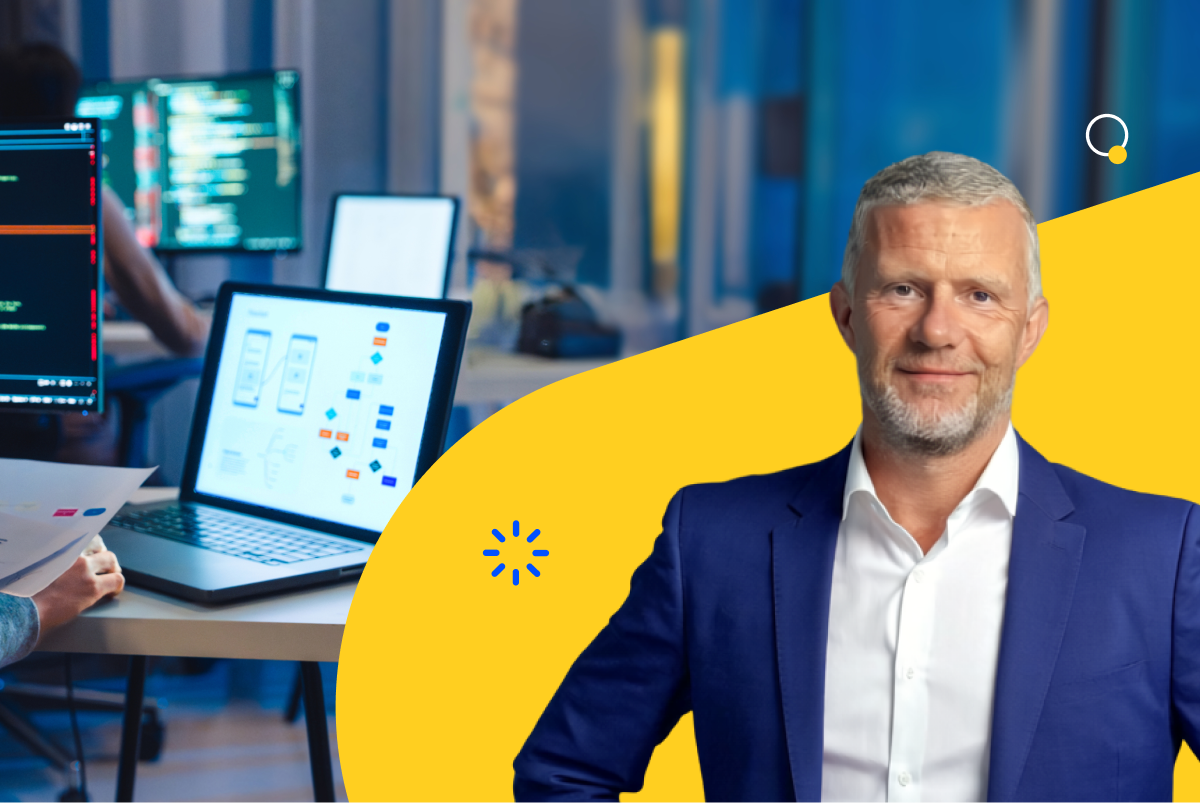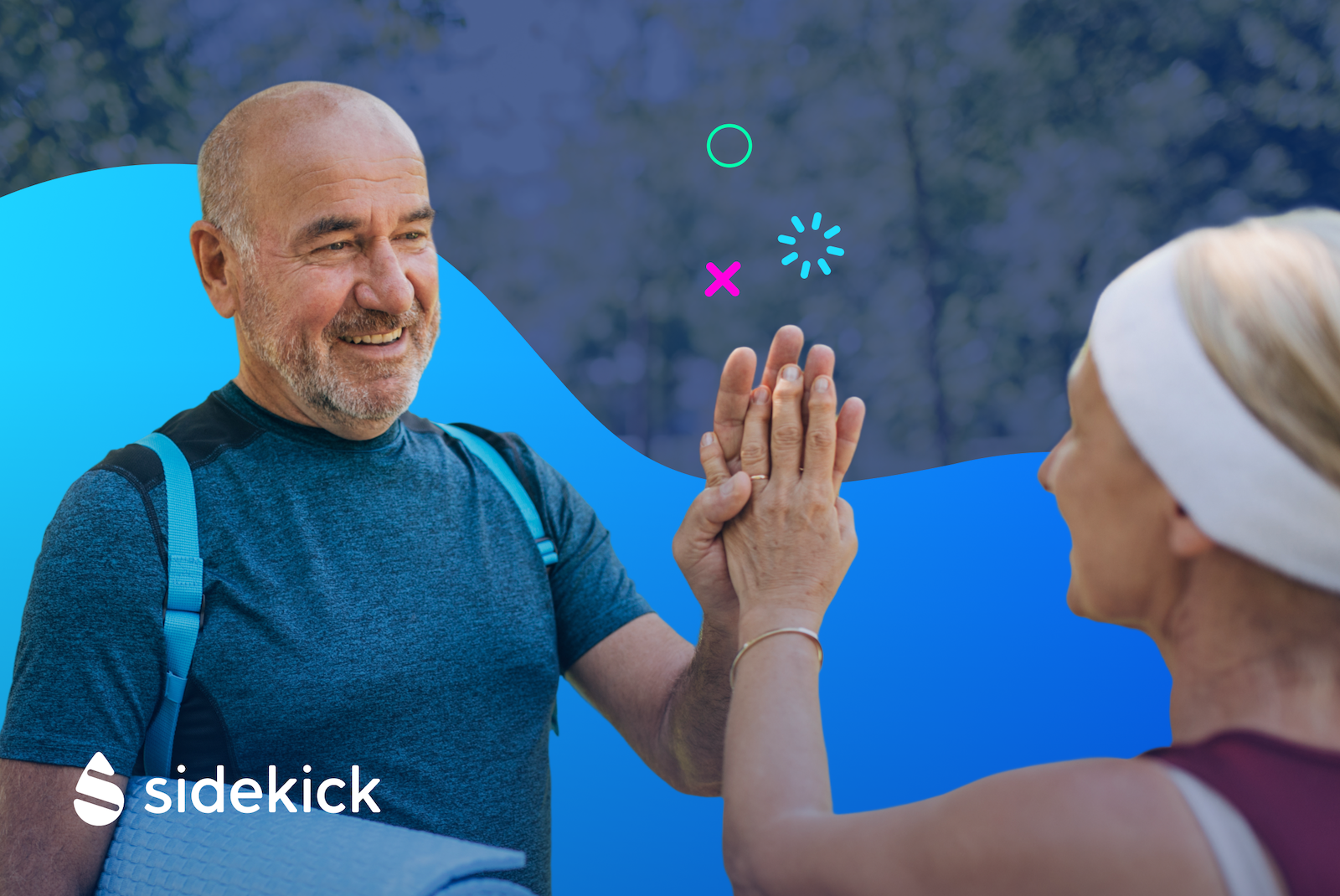
Success stories: How Sidekick Helped Jaana Heikkinen to Take Control of Her Own Health
Inflammatory Bowel Disease (IBD) affects over three million people in Europe, according to estimates by the European Federation of Crohn’s and Ulcerative Colitis Associations (EFCCA). IBD, which includes Ulcerative Colitis (UC) and Crohn’s Disease, affects people in different ways, with some managing with minor adjustments following diagnosis, while others are forced to make significant changes to their lifestyle. Sidekick has partnered with Pfizer to support people with IBD across Europe with its digital therapeutics platform. The Sidebar talked with Jaana Heikkinen, who was diagnosed in 2017, to get a better idea of how the disease affects the everyday of life of patients and how Sidekick can help.
The Sidebar: When were you first diagnosed with IBD and how did that change your life?
Jaana: IBD-symptoms appeared in the summer of 2017. I was pregnant at the time and in the beginning I wondered if the symptoms were related to the pregnancy. When the symptoms got worse, I turned to the doctor and he ordered a fecal calprotectin test. A few days later, my symptoms got even worse, so I had to go to the emergency room. They were not sure what was going on and where I should be admitted because I was already 19 weeks pregnant. Then they decided to take me to the gastroenterology ward and ordered a colonoscopy. At the same time, I got the results from the fecal calprotectin test and it was an astonishing 3590. The reference is 0-100 so it meant that the inflammation was hitting hard and I was diagnosed with UC. I had to be off work for 4-5 weeks and I was under strict care for the rest of the pregnancy. The changes to my everyday life were enormous, in addition to taking on a new role of being a mother.
The Sidebar: IBD affects over three million people in Europe, so you are not alone. But did you feel isolated to begin with?
Jaana: In the beginning I kept asking myself, why did this need to happen me now? The beginning of the pregnancy was not easy because of nausea and worsening migraines. But I think I would have been more shocked if we had not faced serious illness in our family before. Based on that experience, I knew that everyone would be taking good care of me and that the situation would be monitored closely. Coming back to work after a long absence made me feel distressed and I was constantly thinking about how my co-workers felt about me being away for such a long time. What also helped was that I was always able to call the clinic or leave a message for the IBD nurses there if I was troubled or worried. The early days after the diagnosis would have been so much more challenging without my trusted IBD-nurse Karoliina, who now works for Sidekick. She had the time to listen to me and she was able to explain everything and answer all my questions.
The Sidebar: IBD can be kept under control with medication, but lifestyle factors are also extremely important when comes to the quality of life for people with IBD. How has Sidekick helped you in your everyday life?
Jaana: Sidekick has helped me to control my diet and boost my physical activity. I also like the mindfulness exercises a lot. The daily tasks the program prompts me to do, as well as collecting water when completing them for the children in need, are an extremely big motivator. The app works as a little “ass-kicker” when it comes to physical activity. For example, it gives me a daily goal to reach 19,000 steps. And YES I feel a bit annoyed if I do not reach that goal, even if I only miss it by a 100 steps.
The Sidebar: Have you learned anything new by using Sidekick and what are the clearest benefits?
Jaana: By using Sidekick I have had new insights into the benefits of relaxation. Before, I really did not do any relaxing exercises. Now they have become a part of my daily routine, something I just do every evening. Sidekick also provides support and encouragement for regular physical activity and to select the right foods for my condition. The water logging is a great feature, since it really gives me a clear picture if I have been drinking enough water during the day.
The Sidebar: COVID-19 has restricted access to healthcare professionals. Has Sidekick provided you with valuable extra support during the pandemic?
Jaana: Sidekick reminds me to take my medication on a daily basis. But of course, you have to set the reminders in the app first. And the constant encouragement gives me a sense that I have ongoing support. That is where the online IBD-nurse, working behind the scenes to provide comments and suggestions, is crucial. It gives me comfort knowing that I can get support via the app, when access to clinics might be restricted.
The Sidebar: Has the program provided you with value in-between visits to healthcare professionals and addressed any unmet needs, not provided in a clinical setting?
Jaana: The UC support program tackles various themes, which are not addressed at the clinic, including relaxation and mindfulness – and in my experience these issues are very important when it comes to my overall quality of life. The focus at the clinics is more on the direct treatment of the disease and taking the medication, which of course is necessary. But I feel that Sidekick offers me a holistic approach to cope with my condition, helping me to focus on other equally important areas of my life by using the power of the food, move and mind elements of the app.
The Sidebar: How was the onboarding process and what features do you find most useful?
Jaana: The process of joining the program was easy. But of course, you need to provide some information at the beginning to get the most out of it. The regular tips on physical exercise and nutrition are helpful. And I found the push notifications from the online IBD-nurse to be extremely beneficial, giving me support when my energy level dips and my stress level rises. The IBD-nurse quickly noticed that and prompted with push notifications to identify the possible cause.
The Sidebar: Why would you recommend Sidekick?
Jaana: I would recommend the Sidekick solution to everyone dealing with a chronic illness. It is really easy to use and because it can be tailored to the user, the whole experience is very personal. Because of the regular tips and nudges it becomes much easier for you to pay attention to your lifestyle and to avoid behaviors that can make your condition worse. And by doing all these good things for yourself, you can do so much good for others. By changing to a healthier lifestyle you are also helping others by donating clean water, giving polio vaccines and planting trees. Doing good things for yourself and helping others at the same time is a great motivational booster. What could be better?
Interested in partnering with us? Or, do you want to learn more about the digital therapeutics space? Sign-up for The Sidebar now. (Don’t worry, you can unsubscribe at any time.)
About the author
.jpg)



.svg)







.jpg)
.jpg)

%201%20(1).jpg)
.jpg)


.jpg)


.jpg)
%201%20(1).jpg)
.png)
.jpg)

.jpg)
.jpg)
.jpg)


.jpg)



.jpg)




.jpg)
%201%20(1)%201%20(1).jpg)
%201%20(1)%20(1).jpg)

%201%20(1).jpg)

.jpg)
.jpg)
.jpg)




.jpg)
.jpg)

.png)
.jpg)
.jpg)
.jpg)
.jpg)


.jpg)
.jpg)


.jpg)

.jpg)

.jpg)
.jpg)
.jpg)


.jpg)

.jpg)
.jpg)
.jpg)
.jpg)
.jpg)
.jpg)
.png)

.png)

.jpg)
.jpg)
.jpg)

%201%20(1).jpg)



.jpg)

.png)

.jpg)
%201%20(1).jpg)
.jpg)

.jpg)
.jpg)
.jpg)
.jpg)
.jpg)